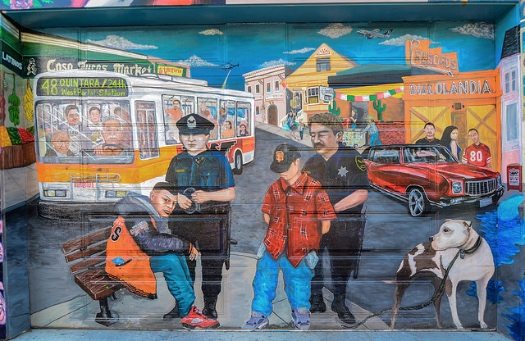
May 30, 2017; KQED
President Trump’s rhetoric has immigration lawyers in California struggling to keep up with rising client demand, as its significant immigrant population seeks to establish or strengthen legal status in the U.S. Its Central Valley, an agricultural region with many immigrant farm workers, is particularly hit hard because it has a “tiny number of immigration attorneys.”
KQED, in a recent article, quoted Justin Sweeney, an immigration lawyer in downtown Fresno, who has seen a 400 percent increase in clients over the same period last year. “I used to do an appointment every hour, but now because there’s so many people coming in we do an appointment every half-hour,” he said.
OneJustice is a California-based nonprofit that maps immigration services in the state in an effort to expand legal services. It has found that even though there are more than 400 nonprofit immigration providers in California, only 28 of them are in the Central Valley. The American Immigration Lawyers Association has about 500 members in San Francisco and Oakland, but barely 40 in Central Valley.
Sign up for our free newsletters
Subscribe to NPQ's newsletters to have our top stories delivered directly to your inbox.
By signing up, you agree to our privacy policy and terms of use, and to receive messages from NPQ and our partners.
There are close to 300,000 legal immigrants eligible for citizenship in the Central Valley, and about the same number of undocumented immigrants. According to Allison Davenport, a staff attorney with the Immigrant Legal Resource Center, which provides presentations on immigration law basics to immigrants in rural areas, “nonprofit groups like hers are trying to fill the gap for those who can’t afford private lawyers. But they are overwhelmed too.”
Geography plays a role. The nearest immigration courts for the Central Valley are in San Francisco and Los Angeles, which means that clients may incur travel expenses and the time for the attorney to travel, which adds to the cost. Cost itself is a challenge for the farmworker client “with little cash to spare.”
The dearth of immigration lawyers and the lack of money for legal representation create a third problem. Davenport said, “A lot of attorneys in the area, a lot of their caseload is cleaning up the mess created by fraudulent providers.” Immigration consultants, called notarios in Spanish, are barred from giving legal advice in California, but in Mexico notarios are licensed to practice law. Immigrants sometimes resort to notarios as they try to navigate the complexities of immigration law. U.S. immigration laws are complex, and some notarios are incompetent while others are outright swindlers.
Immigrants are jumping at the opportunity to get advice from nonprofits like the Immigrant Legal Resource Center. Funding for immigrant legal support has increased recently and this has allowed nonprofits in California’s Central Valley to expand their services. Much more needs to be done, however, to make sure immigrants get the legal help they need.—Cyndi Suarez













